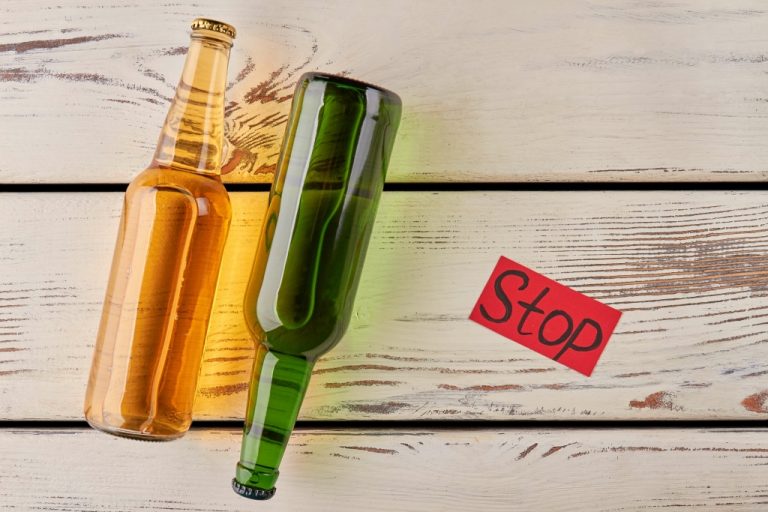What Happens to the Brain During Cognitive Dissonance?
If patients are provided with the opportunity to co-design aspects of their therapy, they may be more likely to act in line with their choices by reaching their therapeutic goals. A good example is the prospect of embarrassing ourselves in front of others, such as by forgetting our words during a speech. However, after further thought, we may decide that it does not matter what others think of us and can thus reduce the dissonance. Cognitive dissonance leads to the motivation to reduce the dissonance (Festinger, 1957). The stronger the discrepancy between thoughts, the greater the motivation to reduce it (Festinger, 1957).

In some cases, they will help you transition to a sober living environment straight from treatment. As you develop your sober routine you will eventually that your life is happier and more fulfilled than it ever was when you were struggling with addiction. Sober living can be a healthier and more enjoyable than you have ever felt in your life before. There are endless possibilities when it comes to finding hobbies and activities that don’t involve alcohol or drugs. You will find that being sober can actually open doors to things that you never thought of trying that actually make you feel much more happy and fulfilled.
Is Sober Living Right for My Situation?
The best online therapy that takes insurance is Brightside, followed by Talkspace. If you’re enjoying this article, consider supporting our award-winning journalism by subscribing. By purchasing a subscription you are helping to ensure the future of impactful stories about the discoveries and ideas shaping our world today. If you are curious about changing your relationship with alcohol, check out this free 30-Day toolkit that is designed to help you cut down on drinking without relying on willpower. Many adults believe that they drink alcohol because they genuinely like the taste.
I was told the 12 steps would cure my addiction. Why did I end up feeling more broken? – The Guardian
I was told the 12 steps would cure my addiction. Why did I end up feeling more broken?.
Posted: Sat, 04 Dec 2021 08:00:00 GMT [source]
There is no doubt that cognitive dissonance can have a powerful influence on our behaviors and actions. In today’s world, people do things or have beliefs and opinions that sometimes leave us questioning humanity. Maybe they do not make much sense to you or other people, but everyone is different.
Sober Living Guide
People who feel it could realize, for example, that they need to update their beliefs to reflect the truth, or change their behavior to better match the person they want to be. While cognitive dissonance is often described as something widely and regularly experienced, efforts to capture it in studies don’t always work, so it could be less common than has been assumed. People do not necessarily experience discomfort in response to every apparent contradiction in their thoughts and beliefs. Nevertheless, the participants experienced challenges in constituting and confirming their new identities. Many experienced a challenge dealing with grief, having wasted so many years of their lives on being addicts. Again, an addict’s brain is different from someone who is not addicted to drugs and alcohol.
- For those who are battling drug or alcohol addiction, cognitive dissonance is used as a coping mechanism.
- Hence, sobriety represents a gateway to a range of positive and self-reinforcing circles such as social networks, an occupation, and thus a new life and identity.
- It is a mechanism that alerts us when we are not acting in line with our beliefs, attitudes, or plans.
- The participants described that staying clean and avoiding temptations required avoiding contact with old friends and people they had known in the substance use milieu.
To reach such a goal, patients must be assisted in learning to cope with personal, interpersonal and social triggers. In addition, treatment should focus on identity and reorientation, social relations and preparation for the future, considering the realisation that new challenges will appear. This aligns with other studies and models of recovery from addiction (Mananita et al., 2011), as well as related disorders (Pettersen et al., 2013; Rosenvinge and Pettersen, 2012). A present- and future-focused journey of personal recovery also require a distance from the past, not retroactively, but proactively by protecting oneself from triggering situations, contexts and individuals.
Dual Diagnosis Treatments
The participants stated that accomplishing this leave of identity required a “reset” in thinking, attitudes and even the way of speaking to communicate and get feedback from other people according to the new identity as a non-addict. Considering recovery as a long-term process (Keith et al., 2021) poorly captured by controlled https://ecosoberhouse.com/article/benzodiazepine-withdrawal-symptoms-timeline-and-treatment/ studies (Bjørnestad et al., 2020), qualitative studies are most likely to bring forward more processual knowledge. Hence, the present paper adds to this field of knowledge by exploring how former patients in recovery from SUD experience the benefits and challenges of a reoriented identity and way of living.

Cognitive dissonance can occur because people fear appearing foolish or ignorant. This type of internal conflict also occurs because people feel guilty or uneasy about holding these opposing cognitions cognitive dissonance and addiction – they don’t want to think of themselves as illogical or inconsistent. These internal conflicts are hard to live with, and if not dealt with the individual will feel bad about themselves.
Category 3 renewing non-addiction relationships and social network
Festinger and Carlsmith (1959) conducted one of the first studies examining cognitive dissonance. These detailed, science-based exercises will equip you or your clients with tools to find new pathways to reduce suffering and more effectively cope with life stressors. This can be a difficult and uncomfortable process and involves getting additional information.


